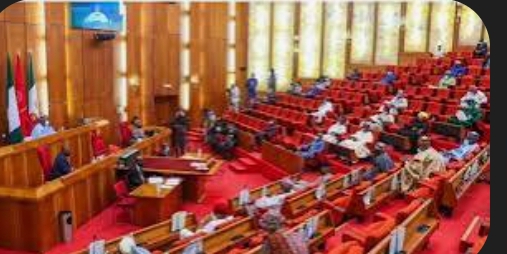In a move expected to reshape the landscape of Nigeria’s financial sector, the country’s Senate has welcomed the signing into law of the Nigerian Insurance Industry Reform Act (NIIRA) 2025, describing it as a historic turning point in the evolution of insurance regulation in Africa’s largest economy.
Signed by President Bola Ahmed Tinubu on Tuesday, the NIIRA consolidates and modernises decades-old laws governing the insurance sector.
It introduces a unified legal framework intended to spur innovation, enhance regulatory oversight, deepen public trust, and dramatically increase access to insurance services across Nigeria.
Senator Tokunbo Abiru, Chairman of the Senate Committee on Banking, Insurance and Other Financial Institutions, who championed the legislation, described it as “a pivotal milestone” not just for Nigeria’s insurance industry, but for the broader project of economic transformation across the country.
Abiru said, “For decades, our insurance sector has remained underdeveloped, with penetration rates languishing around 0.5 percent of GDP—far below the continental average. This Act is designed to reverse that trajectory.”
The new law introduces robust structural changes.
Among its provisions are substantially increased capital requirements for insurers and reinsurers to ensure their financial stability and operational soundness.
In addition, it mandates the full digitalisation of insurance operations—an ambitious step aimed at improving transparency, efficiency, and access, particularly in underserved and rural communities.
Another crucial feature of the NIIRA is the imposition of enforceable timelines for the assessment and settlement of insurance claims, with penalties in place for unjustifiable delays.
This is expected to rebuild trust in the sector, where prolonged claims processing has long been a source of consumer frustration.
The law also strengthens the enforcement of compulsory insurance schemes, including motor vehicle insurance, insurance for public buildings, and employee compensation policies.
These measures aim to better protect lives, livelihoods, and property in one of Africa’s most dynamic and rapidly urbanising countries.
The NIIRA expands the powers of the National Insurance Commission (NAICOM), the sector’s regulatory authority, granting it enhanced supervisory and enforcement capabilities.
With these tools, NAICOM is expected to drive compliance, encourage innovation, and ensure market discipline among operators.
Nigeria’s growing participation in regional insurance initiatives, such as the ECOWAS Brown Card Scheme—which provides cross-border motor vehicle insurance coverage—is also given fresh impetus under the new law.
For Senator Abiru, the enactment of the NIIRA is not just a legislative success; it is a strategic realignment of Nigeria’s insurance architecture to meet the demands of a changing economy and a digitally driven global financial system.
He credited the passage of the bill to the collaborative efforts of lawmakers across both chambers of the National Assembly, the leadership of NAICOM, and stakeholders within the insurance industry.
“With NIIRA, we are laying the foundations for a safer, more resilient, and prosperous Nigeria,” he said, adding that the next challenge lies in implementation.
Industry experts view the NIIRA as a bold and timely intervention.
It is widely expected to stimulate investment, expand job opportunities, raise investor confidence, and ultimately deliver better insurance services to millions of Nigerians—marking a critical step forward in Nigeria’s bid to modernise its financial infrastructure.
As the continent continues to push for deeper financial inclusion and regulatory harmonisation,
Nigeria’s insurance reforms could provide a model for other African nations seeking to energise their own underdeveloped insurance sectors.





